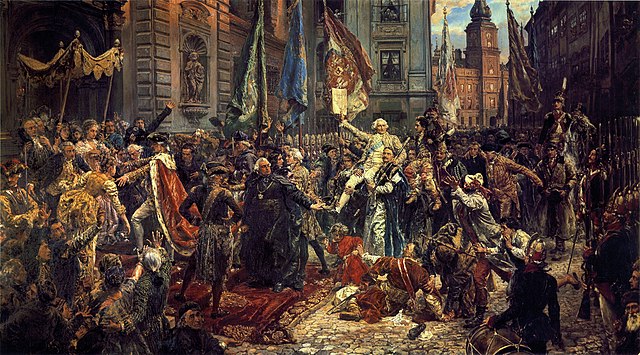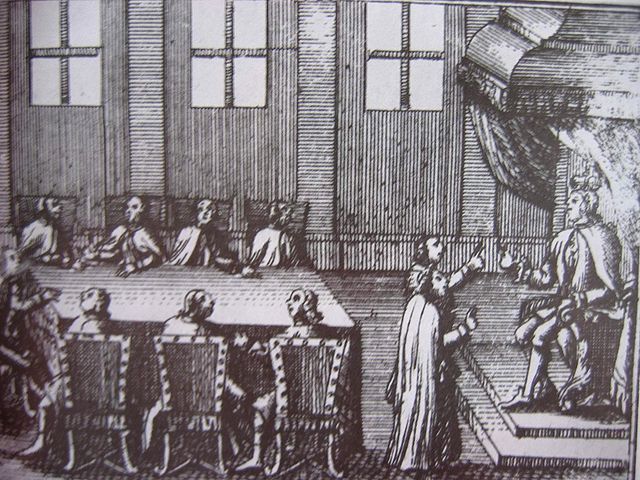Friends of the Constitution
The Friends of the Constitution was the first modern Polish political party, formed in May 1791, shortly after the adoption of the Constitution of 3 May 1791, by the efforts of the Patriotic Party. The purpose of the Friends of the Constitution was to defend the reformed political system and to introduce further reforms.
3 May Constitution, by Matejko (1891). King Stanisław August (left, wearing ermine-trimmed cloak) enters St. John's Cathedral, where deputies will swear to uphold the Constitution. Background: Warsaw's Royal Castle, where Constitution has just been adopted.
Constitution of 3 May 1791
The Constitution of 3 May 1791, titled the Government Act, was a written constitution for the Polish–Lithuanian Commonwealth adopted by the Great Sejm that met between 1788 and 1792. The Commonwealth was a dual monarchy comprising the Crown of the Kingdom of Poland and the Grand Duchy of Lithuania; the new constitution was intended to address political issues following a period of political agitation and gradual reform that began with the Convocation Sejm of 1764 and the election that year of Stanisław August Poniatowski, the Commonwealth's last king. It is the third written constitution in history, after that of the United States and San Marino.
Constitution of 3 May 1791, by Matejko. Foreground: King Stanisław August (left) enters St John's Cathedral, in Warsaw, where deputies will swear to uphold the Constitution. Background: the Royal Castle, where the Constitution has just been adopted.
King Stanisław August Poniatowski, principal author of the Constitution of 3 May 1791. A year later, he acquiesced in its demise; this was seen by Constitution defenders as high treason, per the Constitution's Article VII and section six (sexto) of Article VIII, and per the Declaration of the Assembled Estates, of 5 May 1791.
In September 1773, Tadeusz Rejtan (on floor, lower right) tries to prevent ratification of the First Partition of the Polish–Lithuanian Commonwealth by barring other Sejm deputies from entering the Sejm chamber. Painting Rejtan, by Matejko.
From his election, King Stanisław August Poniatowski worked to develop an executive government council. In 1775 the Partition Sejm established a Permanent Council, after Russia's Catherine the Great concluded it would serve her purposes.




